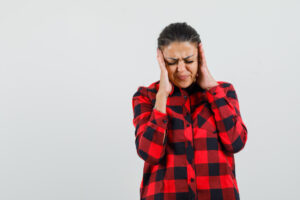What is a Cluster Headache?
A cluster headache is a severe type of headache. It often comes in cycles or “clusters.” These headaches can cause intense pain, usually on one side of the head. Unlike migraines, cluster headaches are shorter but much more painful. Many people feel them around the eye or temple. According to the World Health Organization, cluster headaches are rare but can be very disabling. Because they often come at the same time each day, they can disrupt daily life. Early recognition helps with better cluster headache treatment.
Symptoms of Cluster Headache
Cluster headache symptoms appear suddenly and can be very intense. Knowing the signs can help you seek help sooner. Common symptoms include:
Sometimes, people may also feel sensitive to light or sound. However, these symptoms are less common than with migraines.
Causes and Risk Factors
Doctors do not know the exact cause of cluster headaches. However, research suggests changes in the brain’s hypothalamus may play a role. Several risk factors can increase your chances of getting cluster headaches:
Although triggers like strong smells or bright lights can make symptoms worse, they do not cause the condition itself. Understanding your risk can help with preventing cluster headaches.
How Cluster Headache is Diagnosed
Doctors diagnose cluster headaches based on your symptoms and medical history. There is no single test for cluster headaches. However, your doctor may:
Because cluster headaches can look like other types of headaches, it is important to share all details with your doctor. Early and accurate diagnosis helps guide the best cluster headache treatment.
Treatment Options
Cluster headache treatment aims to reduce pain and prevent future attacks. Your doctor may suggest:
For people who do not respond to standard treatments, other options may be available. These include nerve stimulation or surgery. Always discuss the best cluster headache treatment with your doctor. If you are looking for cluster headache treatment in your area, ask your local neurologist for advice.
Lifestyle Tips and Prevention
While you cannot always prevent cluster headaches, some lifestyle changes may help reduce attacks. Try these tips:
Although these steps may not stop all attacks, they can make symptoms less severe. Preventing cluster headaches often requires a mix of medical and lifestyle approaches.
When to See a Doctor
If you have sudden, severe headaches or notice new symptoms, see a doctor right away. Sometimes, headaches can signal a more serious problem. You should seek help if:
“Early treatment can improve your quality of life and help prevent future attacks. If you experience severe headaches, consult a neurologist or headache specialist at Aditya Hospital for personalized advice and effective management.”



